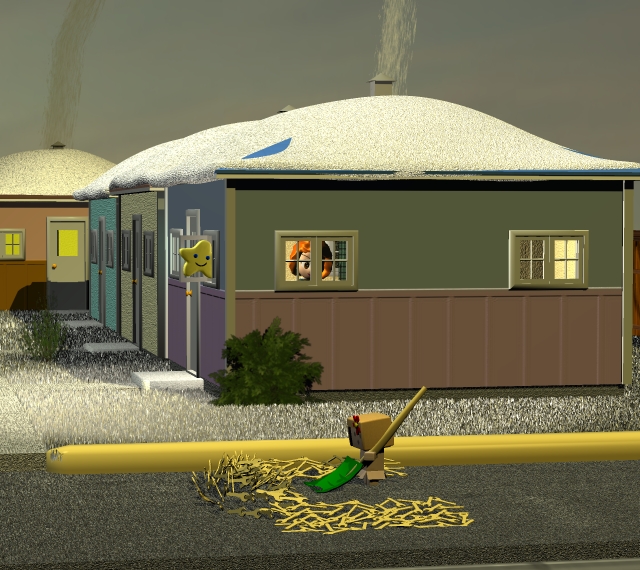Thursday, February 06, 2014
Closing the crescent
Professor Polistra loves etymologies that come around from two different paths and meet in the middle. Best old example: The arc-shaped phase of the moon is called crescent because it's growing. We've forgotten the original meaning; we just call arc shapes crescents. Thus the Crescent Wrench is named for its moon-like shape. But what is the most important quality of a Crescent Wrench? It grows. Fresh example: A network radio sportscaster was talking about the oddity of Sochi as a site for winter sports. Crimea is the only part of Russia that isn't seriously wintery. They had to save and accumulate snow for a whole year in order to have enough for skiing. Sportscaster made a joke: "Where do you save up snow? A snowbank!" Exactly right from two directions. When snow naturally lasts into summer, it's snow that has been plowed up into a bank. Flat snow doesn't last. Incidentally, the money-type bank is often etymologized through bench, from the supposed bench-sitting work habits of Jewish bankers in one part of Italy. Seems dubious and overly specific. More likely it comes directly from the basic sense of mound or pile or stack, exactly like a snowbank or a banked fire:
Incidentally, the money-type bank is often etymologized through bench, from the supposed bench-sitting work habits of Jewish bankers in one part of Italy. Seems dubious and overly specific. More likely it comes directly from the basic sense of mound or pile or stack, exactly like a snowbank or a banked fire:
Professor Polistra loves etymologies that come around from two different paths and meet in the middle. Best old example: The arc-shaped phase of the moon is called crescent because it's growing. We've forgotten the original meaning; we just call arc shapes crescents. Thus the Crescent Wrench is named for its moon-like shape. But what is the most important quality of a Crescent Wrench? It grows. Fresh example: A network radio sportscaster was talking about the oddity of Sochi as a site for winter sports. Crimea is the only part of Russia that isn't seriously wintery. They had to save and accumulate snow for a whole year in order to have enough for skiing. Sportscaster made a joke: "Where do you save up snow? A snowbank!" Exactly right from two directions. When snow naturally lasts into summer, it's snow that has been plowed up into a bank. Flat snow doesn't last.
 Incidentally, the money-type bank is often etymologized through bench, from the supposed bench-sitting work habits of Jewish bankers in one part of Italy. Seems dubious and overly specific. More likely it comes directly from the basic sense of mound or pile or stack, exactly like a snowbank or a banked fire:
Incidentally, the money-type bank is often etymologized through bench, from the supposed bench-sitting work habits of Jewish bankers in one part of Italy. Seems dubious and overly specific. More likely it comes directly from the basic sense of mound or pile or stack, exactly like a snowbank or a banked fire:
Evelyn, referring to the Monte di Pieta at Padua, writes: "There is a continual bank of money to assist the poor." Blackstone also says: "At Florence, in 1344, government owed £60,000, and being unable to pay it, formed the principal into an aggregate sum called, metaphorically a Mount or Bank."Linguists always prefer dubious multi-stage narrative theories when simpler origins are available.
Labels: Danbo, Language update
